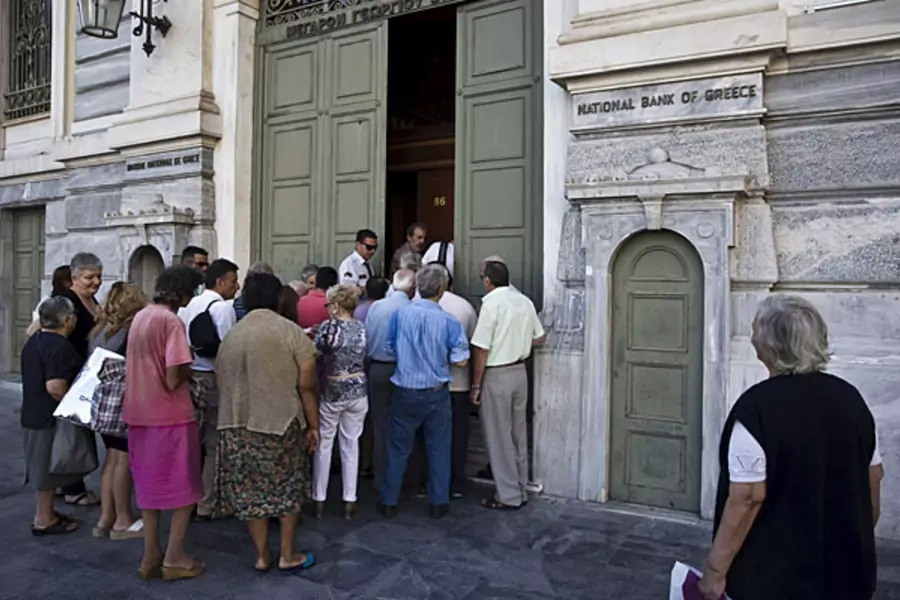More on:
Greek banks reopened today, but there isn’t much you can do at them. Capital controls and withdrawal limits remain in effect, money transfers are barred (except for tax, social security or a few other allowed domestic transactions) and new accounts or loans effectively ruled out. Greeks now will be able to deposit checks, access safety deposit boxes, and withdraw money without an ATM card. All good things, though I suspect that any political boost from the visuals relating to reopening will proved short-lived.
Amidst concern that the financing needs will outstrip the three-year, €86 billion financing gap agreed last weekend, attention now turns to the €30-40 billion European rescue facility (ESM) that must be negotiated quickly. This occurs against an unsettled political backdrop—a second vote this Wednesday on justice and banking reforms should pass, but may see more defections from the government side than last week’s vote. With new elections now expected for September or October, there is a narrow window in which to get a financing agreement done.
Meanwhile, industrial activity data show a continuing decline, and anecdotal evidence suggests a continuing, broad-based drop in activity. The €7.2 billion bridge loan released today will allow the government to meet ECB payments and eliminate arrears to the IMF and Greek central bank, stepping back from one cliff. But now the question of reactivating an economy that ground to a halt during the crisis moves to the fore, and the imposition of new taxes approved last week will not help in the near term. The banks will remain in this semi-frozen state pending an asset review and recapitalization (and bail in of unsecured creditors) expected by early 2016. Unrealistic expectations about a return to economic normalcy may represent the most immediate threat to the program in coming days. This is why I believe, like others (for example, here), that “Grexit” remains the most likely outcome. As the reality of the path the government has chosen sets in, the next month may prove the most difficult yet.
More on:
 Online Store
Online Store
